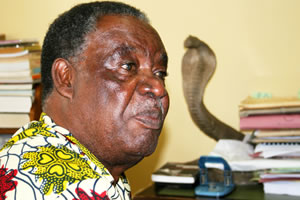
By Elias Munshya wa Munshya
Undoubtedly, Chiluba’s press conference speech had called into question Sata’s personal moral character, but more than that it called into question the general character of Zambian politics.
If Sata was indeed as bad as Chiluba had claimed he was, then it begs the question why he kept him as his closest confidante in Cabinet and in the MMD for over ten years. Sata’s last position in Chiluba’s government was Minister-Without-Portfolio, the third highest office.
Besides, Chiluba claimed that as former head of State he had information about each minister, and so he had some damning information about Mr. Sata. But in spite of this information he still kept Sata in Cabinet, deliberately, keeping in political office someone he knew was unworthy and unfit. We dare not forget that in the 2006 elections, Chiluba was on hand to urge Zambians to vote for Sata—that is why today, I find it rather awkward to understand how Chiluba can both say that Sata is wrong for Zambia, but at the same time urge Zambians to vote for him as president nevertheless in 2006.
Chiluba only withdrew support to Sata just about the time that Sata did the so called reconciliation with Mwanawasa. If that be the case then it should suffice for us to know that Chiluba may have withdrawn support for Sata not because Sata was morally depraved, but rather because he Sata associated with Mwanawasa. It seems Chiluba’s principle was you could not be his friend if you were a friend of Mwanawasa. But this principle did not just apply with Chiluba; Mwanawasa also used it very well. Most of Mwanawasa’s close political confidants cut their links from Chiluba. It is rather ironical that only the late Dalton Sokontwe, stayed close to Chiluba.
The speech also raises some questions about the Church and her deeds. However, the Church should not be brought into political or personal problems of this nature. This is because the Church, whether protestant or Catholic is by its nature both a human institution and a divine institution, and as a human institution it is fraught with human weaknesses, favoritism and other vices. But in spite of her weakness, the Church has been a spiritual home bestowing solace and hope to countless, and we esteem her and esteem her fellowship regardless. It is therefore, not necessary that the Church should be brought into disrepute simply because of how it has behaved towards one politician or the other.
Unfortunately, both Chiluba and Sata have used some unpleasant words against the Church. For Sata he has very little respect for Chiluba’s “born again” Christianity, whereas Chiluba from this speech does seem to call into question the Catholic Church’s attitude towards Sata’s morality. However, the best policy towards the Church should be for politicians, including Sata and Chiluba to leave the Church alone. For her part the Catholic Church may be trying to bridle in some turbulent priests within the Ndola Diocese by bringing in Dr. Alick Banda, an expert of Church-State relations, as Bishop. Nevertheless, we are yet to see the impact that Bishop Banda will have on the politically charged Ndola Diocese.
Having pointed out the above issues, however, Chiluba’s speech is a very powerful political document whose impact at taming the political venom of Michael Sata should not be underestimated. It looks like with this speech, Frederick Chiluba is coming back to fight for the MMD and for Rupiah Banda. As for Sata, he nevertheless has a lot of questions he needs to answer, and Chiluba posed the questions very well. But I wonder whether those questions are just for Michael Sata alone!




























